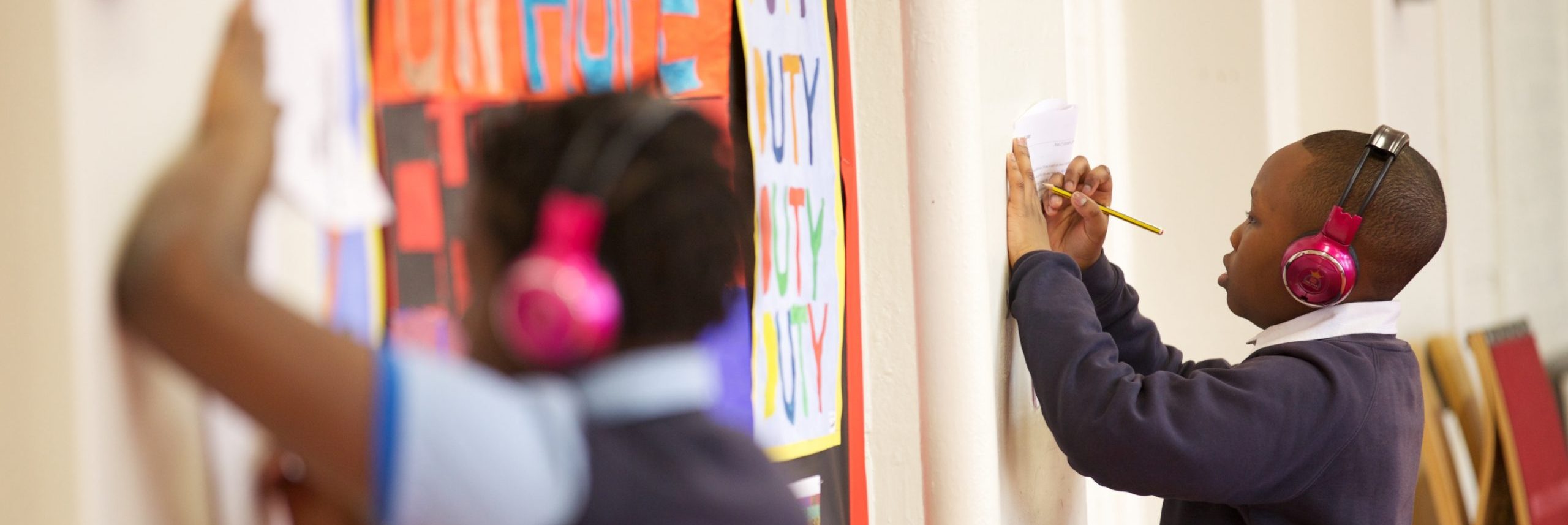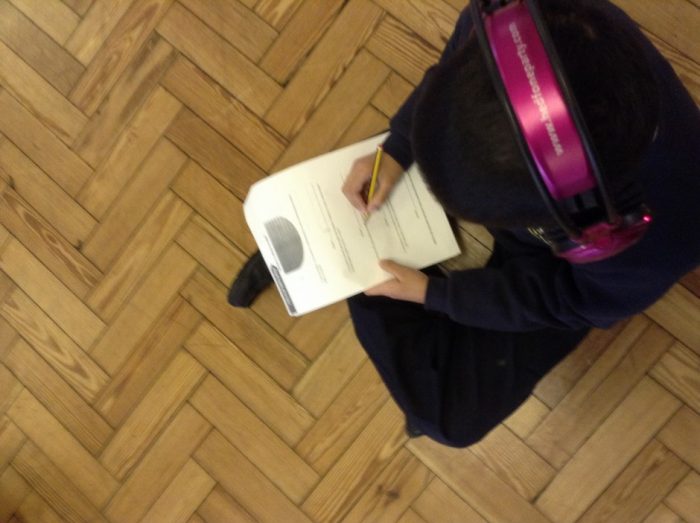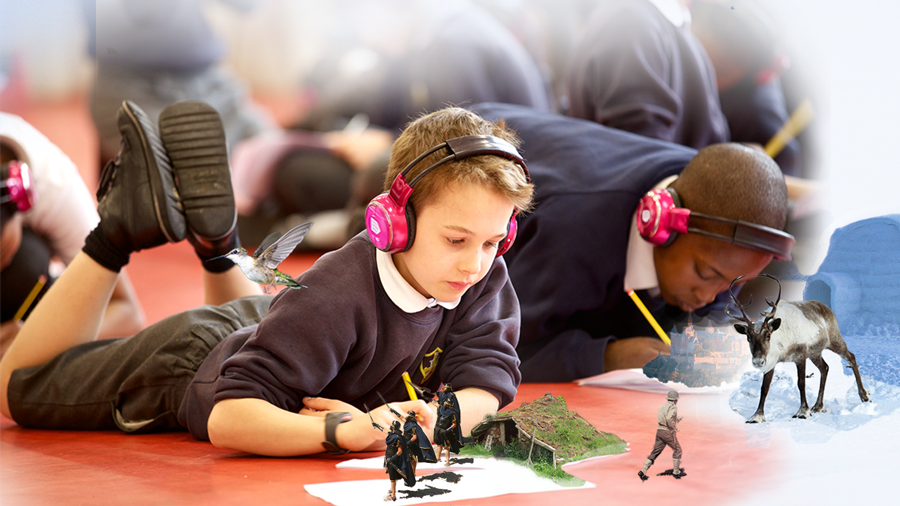
The Problem
This September, Michael Gove’s 2014 curriculum came into effect. As all schools know, the expectations in literacy and maths in particular have soared, with children expected to be roughly a year ahead of where they were last year.
The Solution
At now>press>play, we want to help teachers meet the new curriculum head on. So we have developed a literacy series for KS2, a four-part Experience which focuses on relative clauses and fronted adverbials.
So how does it work?
Every session starts with a mini lesson (for which we provide a simple lesson plan), which introduces the concepts that the Experience will focus on. The children then put on the headphones and take part in the Experience. During the story there are three breaks in which they answer questions and apply the concepts they have learnt. The last part of the lesson is a group marking session where the children can evaluate their work and identify anything they have got wrong.
The series is set in Nazi Germany in 1939. Expelled from school for being Jewish and under attack in their own home, the children seek refuge at their neighbour’s. But the Secret Service track them down and pack them onto a train. In the concentration camp, they find an old school-friend and together hatch an audacious escape plan.
The children record their persecution in a diary. Using relative clauses and fronted adverbials becomes integral to the story as they attempt to record, in as much detail as possible, everything that is happening to them.

The Outcome
We piloted our literacy series with two Year 5 classes at Gloucester Primary School in Southwark.
The children responded very positively to the literacy series and looked forward to each session. They were gripped by the story and were emotionally involved in the characters’ journeys.
We tested the children’s ability and knowledge of relative clauses and fronted adverbials before and after the series. Overall we saw an improvement of 17% in the children’s marks.
We visited the children six weeks after the session and they remained positive about the impact of the now>press>play series. One child explained that during a test, he forgot what complex sentences meant and a friend reminded him by whispering “now press play”. After his friend had jogged his memory, he remembered how to use complex sentences and was able to complete the test.
Emma Grant, a Year 5 teacher, said,
“Since the Relative Clauses Series, the lower ability children have been using complex punctuation in their writing. Not only have they understood the concepts, but they're using them!”
Emma Grant, Y5 Teacher, Gloucester Primary School
